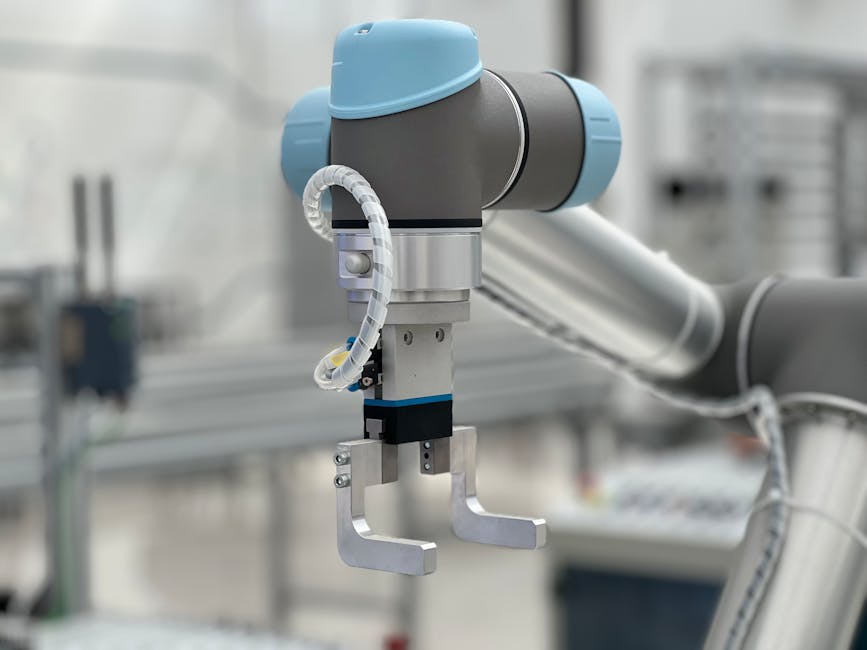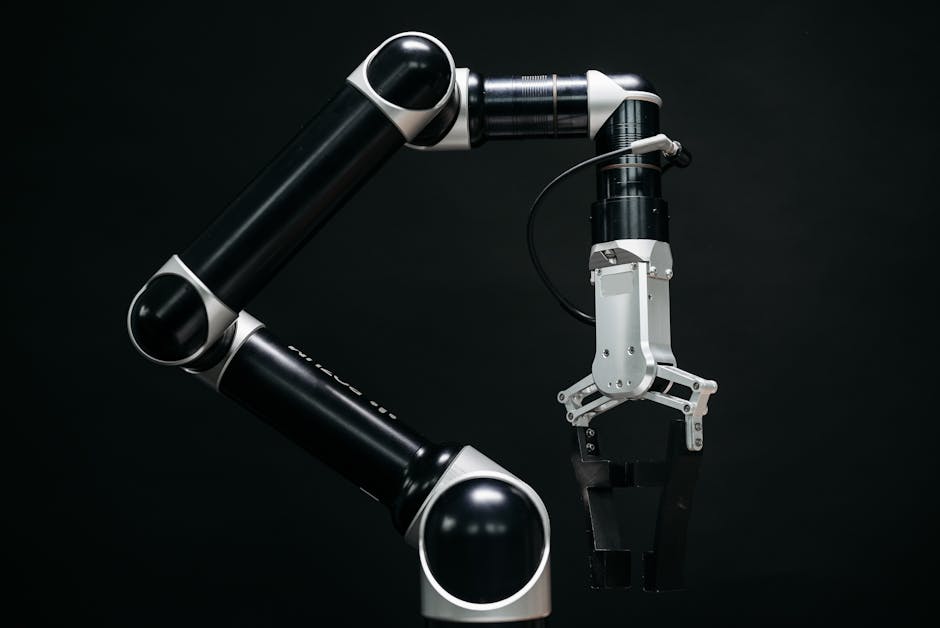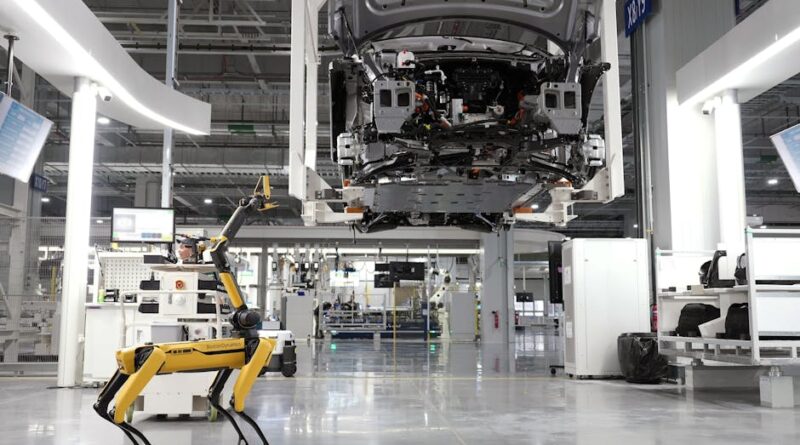Why Every Manufacturer Should Embrace AI
Did you know that 70% of manufacturers believe AI will revolutionize the industry? If you’re in manufacturing, this statistic should grab your attention. While many still see AI as a buzzword, it’s rapidly becoming a game-changer. Let’s explore why every manufacturer should embrace AI and how it can transform your operations.
What is AI and Why Does It Matter?

Artificial Intelligence, or AI, refers to machines that can perform tasks that typically require human intelligence. This includes things like learning, reasoning, and problem-solving. Think of it as giving your machines a brain.
Why is this important for manufacturers? Because AI can streamline processes, reduce costs, and enhance product quality. It has the potential to turn your factory into a smart factory, where machines communicate and learn from each other.
How Can AI Improve Efficiency?

One of the biggest advantages of AI is it’s ability to boost efficiency. Imagine a factory where machines predict breakdowns before they happen. This means fewer unexpected downtimes and higher productivity.
- Predictive Maintenance: AI can analyze data from machines to predict when they’ll need maintenance. This helps avoid costly repairs.
- Supply Chain Optimization: AI can forecast demand better, allowing manufacturers to produce the right amount at the right time.
- Quality Control: AI systems can inspect products using computer vision, spotting defects that human eyes might miss.
By integrating AI into your processes, you can greatly improve how you operate. Less waste means more profit.
What About Labor Costs?

Many manufacturers worry that AI will replace jobs. While it’s true that some roles may change, AI often works alongside humans rather than replacing them. Think of AI as your new assistant.
For example, AI can handle repetitive tasks like data entry, freeing up your skilled workers to focus on more complex projects. This can lead to:
- Higher job satisfaction for employees
- More time for creative problem-solving
- Less burnout from monotonous tasks
In short, AI can enhance the workforce rather than replace it.
Can AI Help with Decision-Making?

Absolutely! AI can analyze vast amounts of data faster than any human. This means better decision-making based on solid facts rather than gut feelings.
For instance, AI can help you understand customer preferences. By analyzing sales data, it can identify trends, allowing you to make informed decisions about new products or modifications.
What Are Some Real-World Examples?
Many companies have already started using AI to their advantage. Here are a few notable examples:
- Siemens: This global powerhouse uses AI for predictive maintenance, saving millions in production costs.
- General Electric: GE uses AI to optimize it’s turbine performance, improving efficiency by up to 10%.
- Ford: The auto manufacturer uses AI for product design, speeding up the development process.
These examples show that AI isn’t just for tech companies. it’s a powerful tool for manufacturers looking to stay ahead.
What Are the Challenges of Implementing AI?
While the benefits are clear, there are challenges to consider. Implementing AI requires investment, both in technology and training. Here are a few hurdles:
- High Initial Costs: The setup and integration of AI systems can be costly.
- Data Security: With more data comes more responsibility. Protecting sensitive information is crucial.
- Skill Gaps: Employees may need training to work with new AI tools.
However, facing these challenges is worth it in the long run. The potential gains in efficiency and productivity can far outweigh the costs.
How Can Manufacturers Get Started with AI?
If you’re ready to dive into the world of AI, start small. Here are a few steps to consider:
- Assess Your Needs: Identify areas where AI could make the most impact.
- Start with Pilot Projects: Implement a small-scale AI project to test the waters.
- Invest in Training: Equip your team with the skills they need to succeed.
- Seek Expert Help: Consider consulting with AI experts or technology providers.
Taking these steps can set you on the path to successful AI integration.
What Are the Future Trends in AI for Manufacturing?
The future of AI in manufacturing looks bright. Experts predict several exciting trends:
- Increased Automation: More tasks will become automated, leading to greater efficiency.
- Improved Human-Machine Collaboration: AI will work alongside humans, enhancing their capabilities.
- Data-Driven Decision-Making: AI will continue to help manufacturers make smarter choices based on data.
Staying informed about these trends can help you remain competitive.
What Are the Key Takeaways?
AI is not just a passing trend; it’s shaping the future of manufacturing. Here are the key points to remember:
- AI boosts efficiency and reduces costs.
- It enhances decision-making through data analysis.
- AI doesnt replace jobs; it transforms them.
- Facing challenges head-on can lead to significant rewards.
By embracing AI, manufacturers can position themselves for success. The question is: are you ready to take the leap?
For more insights on how technology is changing manufacturing, check out our related post on How Technology is Shaping Manufacturing.
In conclusion, AI is not just for tech giants. it’s for every manufacturer looking to innovate and thrive. Start exploring how AI can work for you today!



